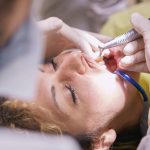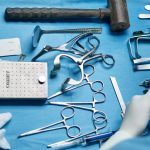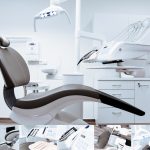
When considering oral health, the topic of dental X-rays often stirs curiosity and concern. Are they a necessary aspect of dental healthcare, or do they pose risks that outweigh their benefits? Dental X-rays are a common tool for dentists to diagnose and monitor various conditions, giving a comprehensive view of what’s happening beneath the surface. Let’s delve into the safety of these imaging procedures and why they are an integral part of maintaining a healthy smile.
Understanding Dental X-Ray Safety
The safety of dental X-rays is a common concern, and rightly so. With any medical procedure, it’s important to consider the potential risks and the measures taken to minimize them.
-
Radiation Exposure: Modern dental X-rays produce a low level of radiation and are considered extremely safe. The amount of radiation exposure from a full mouth series of X-rays is equivalent to the amount a person typically receives in a single day from natural sources.
-
Protective Measures: Protective aprons and thyroid collars are often provided to minimize exposure to the abdomen and thyroid gland during an X-ray session.
-
Advancements in Technology: Digital X-rays have further reduced the radiation dose compared to traditional film X-rays.
Necessity of Dental X-Rays
Dental X-rays serve as an essential component in a thorough oral health check. They allow dentists to detect issues that might be invisible during a standard visual examination.
-
Early Detection: X-rays can reveal early signs of decay, gum disease, and other problems, often before they cause any symptoms.
-
Evolving Conditions: They are crucial in monitoring ongoing issues and verifying that treatments are effective.
-
Preventive Care: Identifying issues early through X-rays is an integral part of preventive dentistry, helping to avoid more serious complications later.
Frequent Questions About Dental X-Rays
Patients often have several questions regarding the frequency and necessity of dental X-rays. It’s important to address these concerns to ensure a comfortable experience.
-
How often should you get dental X-rays? This varies based on individual needs. Some may need them every six months, while others might only require them every couple of years.
-
Are there people who should avoid X-rays? Dentists might postpone routine X-rays for pregnant women as a precaution, although safety measures significantly reduce any potential risks.
-
Can children have dental X-rays? Yes, dental X-rays are considered safe for children, and pediatric dentistry often relies on them for proper diagnosis and treatment planning.
Visiting the Dentist
Regular dental visits are key to maintaining good oral health. During these appointments, not only the health of your teeth but also your gums and mouth is assessed. Modern practices offer a range of services, including routine dental check-ups, professional teeth cleaning, and various preventative measures to keep your oral health on track.
For those seeking a dentist in McPherson, it is recommended to schedule a check-up at least twice a year. Your dentist can personalize your dental care routine, including the frequency of X-rays based on your specific oral health needs.
Comprehensive Dental Services
Dental offices offer a wide array of services designed to cater to the diverse needs of their patients. From emergency dental service to family dentistry, the aim is to provide comprehensive care for all ages.
Among the dental services provided, cosmetic dentistry services hold a significant spot. These services focus not just on the health of your teeth but also on their aesthetic appearance, offering solutions like teeth whitening services to enhance your smile.
Dental Care Essentials
A solid dental care routine at home is an important foundation for maintaining oral health, but some situations require professional insight and intervention.
Part of dental care is educating patients on conditions like impacted canine teeth. For all you need to know about impacted canine teeth, please consult with your dental professional, who can help you through the diagnosis and treatment options to help you resolve these issues.
The Role of Dental X-Rays in Various Treatments
Dental X-rays are vital tools in diagnosing and planning a myriad of dental procedures, from preventive measures to complex surgeries.
-
Preventing Tooth Decay: By detecting cavities early, X-rays help in creating strategies for tooth decay prevention.
-
Oral Surgery: For procedures like dental surgery services, X-rays provide a roadmap of the teeth, bones, and soft tissues.
-
Tailored Treatment Plans: They allow dentists to customize treatment approaches for a wide range of conditions, including gum disease prevention.
Minimizing Risks with Good Practices
Understanding the importance of dental hygiene and the right oral care practices can help minimize the risks that necessitate frequent X-rays.
-
Regular Brushing and Flossing: These home dental care habits are your first line of defense against dental issues that might need to be investigated with X-rays.
-
Professional Cleanings: Adhering to a schedule for professional teeth cleaning can stave off the development of plaque and tartar, leading to healthier teeth and potentially fewer X-rays.
-
Dietary Choices: Consuming a balanced diet and limiting sugary snacks can keep your teeth strong and may reduce the need for diagnostic X-rays.
Covering the Costs of Dental Health
The costs associated with dental health can vary, and managing these expenses is vital for many families. Dental insurance often covers at least part of the cost of dental exams and cleaning, making preventive care more accessible.
-
Assessing Coverage: Understanding your dental insurance plan can help you make informed decisions about the timing and necessity of X-rays within your budget.
-
Seeking Affordable Options: Some dental practices offer affordable dental services, providing different payment plans or discounts for various treatments.
-
Investing in Prevention: Spending on preventive measures like X-rays can save money in the long run by avoiding costlier, more extensive procedures.
Wrapping Up
Dental X-rays are a safe and vital component of modern dentistry. By continuing regular visits to the dentist, maintaining a proper at-home oral care routine, and utilizing professional dental services, you can minimize the need for extensive X-ray use. Understanding the safety protocols in place and the benefits of dental radiography can alleviate concerns, allowing you to embrace these tools as part of your journey to excellent oral health.























































